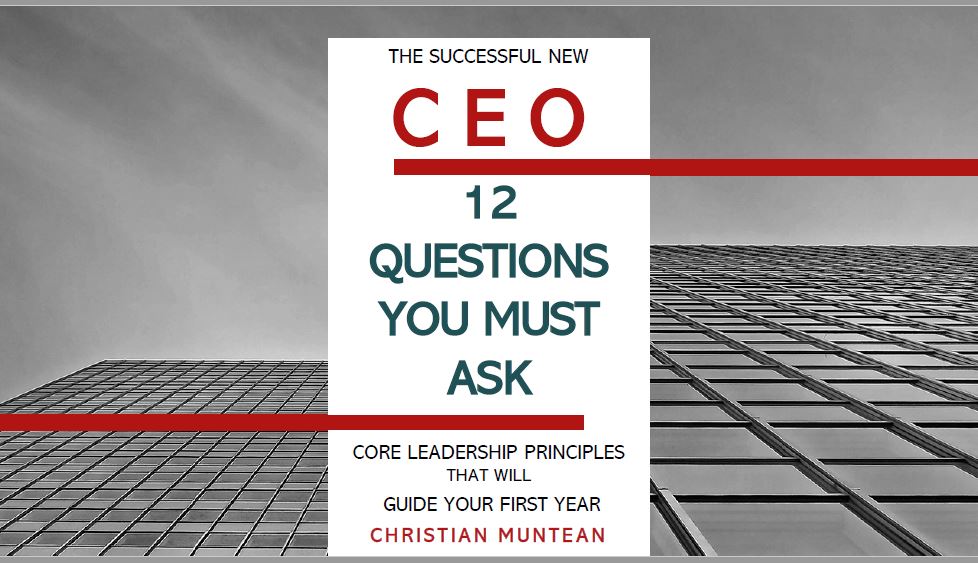You Can’t Afford to Ignore This: The Importance of Strategic Pacing

In high school, I ran both the 110m and 300m hurdles. Both required mastery of pacing. A hurdler should look smooth. The ideal stride should be barely disrupted by a hurdle.
disrupted by a hurdle.
We learned the exact number of ideal strides between each hurdle. For me, that was three strides for the 110m and fifteen for the 300m.
Knowing my stride, how far it should carry me, and how to maintain it regardless of how I felt was a critical ingredient to winning.
But if my stride was wrong, it threw off my pace and timing. At best, I’d end up stutter-stepping or end up jumping each hurdle with a different leading leg. Either would slow me down.
At worst was a mistimed jump, with a trip and possible fall.
Setting and carrying an effective pace is a skill. And it is not easy.
Leaders, especially entrepreneurial leaders, often start strong. But, at some point, many start to fizzle. They get tired or distracted. They are confronted with a “hurdle” that they don’t like. They look down the track and only see more hurdles in front of them. They feel the fatigue. They stutter their strides. They start to trip. Most slow down. Some fall. Many quit.
Leaders need to learn to set a pace.
Pacesetting requires intent, skill, self-management, and higher-level conditioning.
It’s one thing to have a role where someone sets a pace for you. It’s another, as a leader, when determining and keeping a pace is up to you.
Here are seven tips that will help you find, set and maintain your pace:
- Focus on success behaviors, not your goals: Medals didn’t come with wanting it more. They were the result of focused training and attention to detail.Success and failure are the outcomes of small decisions and behaviors over time. For most people, most of the time, our results are the natural outcomes of our habits.Each leader and team have behaviors that either improve or limit the chances of success at whatever they are pursuing.
These are rarely mysterious. Almost every team already knows the habits they need:
- “If we agreed to meet regularly then…”
- “If we would keep our meetings focused we would…”
- “If everyone would show up on time and be prepared to start…”
- “If we could relate respectfully when there was a disagreement…”
- “If we all agreed to follow the processes we’ve built…”
Whatever your vision and goals are, they will (or won’t) be built brick by brick on the consistent application of small success habits. Improve these and you’ll improve the conditions that generate success.
Nothing earth-shattering here. 9.8 times out of 10, teams are struggling due to simple fixes like this.
What is earth-shattering is the results you get when you put the right success habits in place.
- Set challenging but realistic goals: You still need goals. Some leaders tend to sandbag and set unremarkable, sad goals. Others want their empire, and they want it now. Aim for somewhere in between. Challenge yourself, but stay realistic about what can be achieved in a given period of time.
- Break goals into manageable chunks: How many strides should you take between each hurdle? Breaking goals into smaller, more achievable, measurable chunks helps ensure progress. Mapping these chunks out, with timelines and delegated responsibility, is a simple and very effective tool. “If we want to accomplish X by the end of the year – what do we need to accomplish this quarter?” “If we want to accomplish Y at end of the quarter, what do we need to accomplish this month? This week? Today?”
- Prioritize rest and recovery: Rest and recovery are essential for maintaining energy and focus over the long haul. Part of pacing is knowing when to back off. The most productive people are very deliberate and intentional with their rest and recovery.
- Stay organized: Keeping organized will help to ensure that tasks are completed in an efficient and effective way. This will also help to minimize distractions and interruptions.
- Don’t be afraid to pivot: The world is constantly changing, and it is important to be able to adapt to new circumstances. Leaders should be willing to adjust their plans and strategies if it is necessary.
- Engage a pacesetter. Training as a hurdler, I would often run hurdles with someone sprinting beside me. Their pace was a little faster than mine. It helped me move faster.
Leaders should be pacesetters for their teams. They should teach the other leaders in their organization to do the same. And leaders often find they need or want a pacesetter as well.
Someone that can help them measure the appropriate number of strides they should be taking. Someone who can help them move more quickly and smoothly through the hurdles.
If you are looking for that kind of support, contact me here. My clients learn to “run” faster and further with far less effort. Reach out, we can set up a quick call to see if I’m the right pacesetter for you.
Take good care,
Christian
𝗧𝗵𝗲 𝗕𝗲𝘀𝘁 𝗧𝗶𝗺𝗲 𝘁𝗼 𝗖𝗿𝗲𝗮𝘁𝗲 𝗔𝗻 𝗘𝗺𝗲𝗿𝗴𝗲𝗻𝗰𝘆 𝗦𝘂𝗰𝗰𝗲𝘀𝘀𝗶𝗼𝗻 𝗣𝗹𝗮𝗻 𝗶𝘀 𝘽𝙚𝙛𝙤𝙧𝙚 𝗬𝗼𝘂 𝗡𝗲𝗲𝗱 𝗜𝘁.
Be prepared for a smooth transition in the event of an unplanned emergency succession. My guide will show you step-by-step how to devise your own plan.
Free Leadership Resources
Whether you are a new CEO, thinking of succession or exit, or wanting to strengthen your leadership and your team, I’ve got resources to help:
Enhancing your leadership skills
Are you interested in learning more about becoming a successful CEO? If so, get a free copy of my book The Successful New CEO. Not a new CEO? I’ve been told by “old hands” that they felt any CEO should read this. So, click here to get your copy today.
by “old hands” that they felt any CEO should read this. So, click here to get your copy today.
There are 𝟭𝟮 𝗰𝗿𝗶𝘁𝗶𝗰𝗮𝗹 𝗾𝘂𝗲𝘀𝘁𝗶𝗼𝗻𝘀 to ask before accepting a new CEO position. Do you know what they are? Instantly download my free e-book here.
Let’s connect.
I’m passionate about helping leaders to create workplaces they love going to and increasing the value of the services they offer. My results-oriented approach is tailored to each client’s specific situation and needs. As a leadership coach, I have developed a wealth of resources to help you and your team grow and become stronger.
Weekly Newsletter – sign up to receive my weekly articles addressing critical leadership challenges and issues.
The Leadership Coach Podcast – In my podcast, we explore effective, high-impact, and enjoyable leadership. Subscribe.
Categories
Get Christian’s Newest Book: Train to Lead

Download my free 10-page eBook:
How To Accomplish More Without Doing More:
Eight Proven Strategies To Change Your Life
Discover how to save eight hours during your workweek-even if you're too busy to even think about it. The resource every maxed out executive needs.
